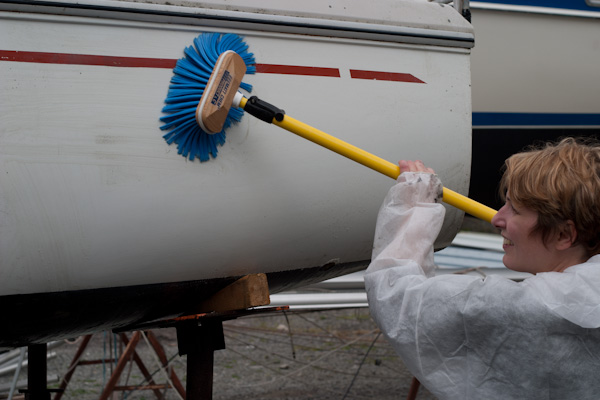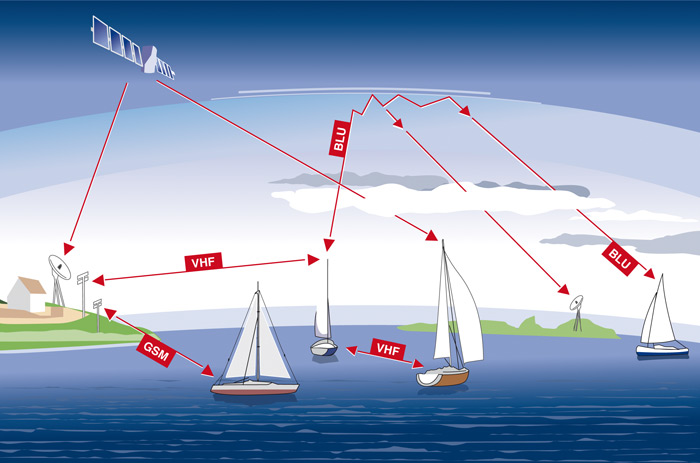Our advices
-
See advice
A desalinator, to function efficiently, must take the sea water into the membranes at more than 55bars. This requires a high pressure pump that operates at a constant pressure which works, depending on the desalinator in 12, 24 or 220 volts for electric pumps or on the motor on mechanical pump models. The installation of a watermaker depends on whether the unit is delivered by individual components (HP pump - central filter - control box) or compact where all the elements are mounted in the factory. The assembly of the second configuration is simpler but requires more space inside the boat. By choosing separate elements, they can fit in different corners on board.
MAINTENANCE
-
See advice
Degreasing the hull and the deck
In port, a boat is attacked by atmospheric pollution but also by oils. Not all marine engines are well adjusted and some cold starts result in a cloud of smoke, which is then deposited onto other boat’s hulls. To clean greasy deposits, we must begin by washing with plenty of water to remove any non-encrusted particles. The second step is the removal of fats with a suitable degreaser. Those that we offer do not tarnish the paint, gelcoat or attack stainless steel or Plexiglas. The only precautions one must take are to follow use instructions, permit the product to act for the specified time and wash well with water.
-
See advice
Preparation
A successful repair, hull polishing or painting is all down to the preparation. It is estimated that represents 75% of the working time. On the areas outside the water a lot depends on the material of the shell.Mono or bi-component paint?
Mono composition paints are easy to use and their solvent evaporation drying leaves a residue far superior to conventional types. They posses a great flexibility are well suited to all bases and strongly recommended for wood. Dual -
See advice
When should you worry?
On a boat that is a few years old, small blisters do not pose a danger. The blisters are, though synonymous with osmosis. One must intervene. The prevention products that are used for processing small pinheads, or even before they occur though, are often more dangerous than doing nothing. If one applies an impermeable product on a not perfectly dry boat, it can actually accelerate osmosis. On a boat with osmosis (large blisters,) action has to be taken. It is a major
operation that requires peeling the gelcoat and controlled drying of the hull which can take months. When the hull is completely dry apply an epoxy resin based product.Understanding osmosis
-
See advice
Fixed or portable?
 The fixed VHF has a maximum power of 25 watts imposed by regulations which limits its range from 15 to 20 miles boat/boat and from 30 to 40 miles toward coastal stations. The new generation of VHF on the market, come equipped with the DSC (Digital Selective Calling) system, ASN (Appel Sélectif Numérique) in French.
The fixed VHF has a maximum power of 25 watts imposed by regulations which limits its range from 15 to 20 miles boat/boat and from 30 to 40 miles toward coastal stations. The new generation of VHF on the market, come equipped with the DSC (Digital Selective Calling) system, ASN (Appel Sélectif Numérique) in French.

